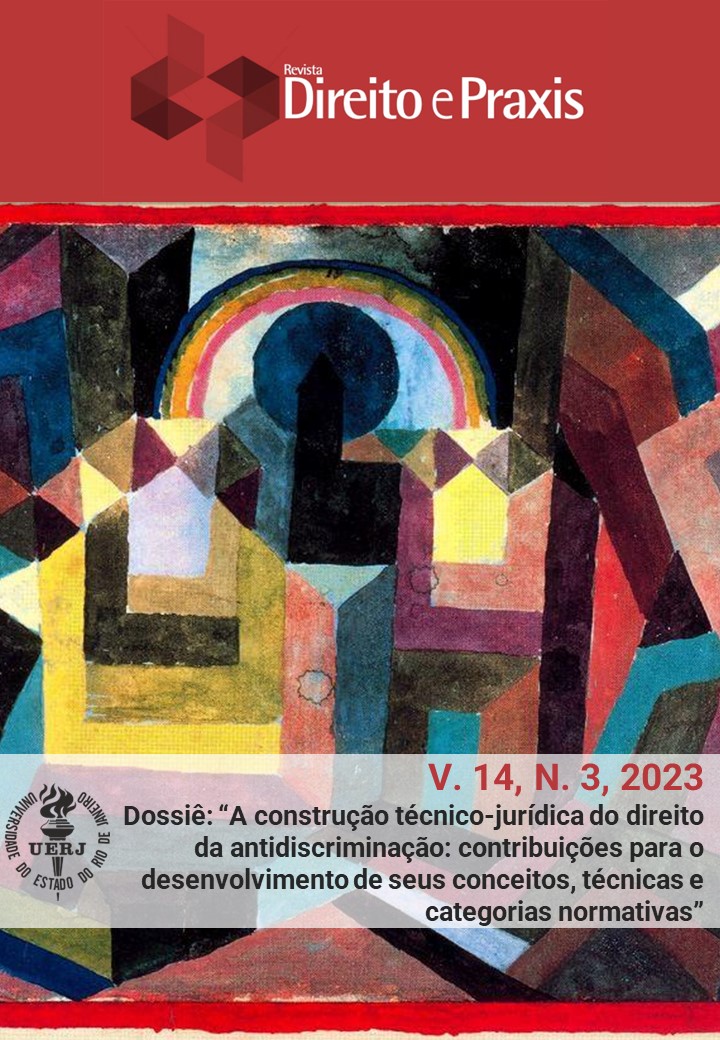Persona sexum non habet: Como conciliar os direitos das mulheres e os direitos das pessoas não binárias? / Persona sexum non habet: How to reconcile the rights of women with the rights of non-binary people?
Palavras-chave:
Direito da Antidiscriminação, Igualdade, Direitos das mulheres, Direitos das pessoas não binárias. / Anti-discrimination Law, Equality, Women's rights, Rights of non-binary people.Resumo
DOI: 10.1590/2179-8966/2023/78336.
Resumo
O presente artigo examina alterações da disciplina legal e do entendimento jurisprudencial dos contornos da noção de gênero no direito antidiscriminatório, em países diversos. Para discutir a relação entre direitos das mulheres e das pessoas não binárias, tribunais de países como Dinamarca, Malta, Irlanda e Noruega passam a compreender a categoria gênero a partir de uma experiência de caráter íntimo e vivenciado a partir das subjetividades individualizadas, valendo-se da compreensão sociológica dos Princípios de Yogyakarta. Os entendimentos engessados e calcados em uma padronização comportamental cisheternormativa passam, assim, a ser revisitados. Com isso, os direitos das mulheres são conciliados aos direitos das pessoas não binárias e são analisados em perspectiva diversa, ganhando uma projeção pluralizada, sideral e em maior consonância com o aspecto material do princípio da igualdade.
Palavras-chave: Direito da Antidiscriminação; Igualdade; Direitos das mulheres; Direitos das pessoas não binárias.
Abstract
This article examines transformations in legal discipline and jurisprudential understanding of the contours of the notion of gender in anti-discrimination law, in different countries. In order to discuss the relationship between the rights of women and non-binary people, courts in countries such as Denmark, Malta, Ireland and Norway begin to understand the gender category from an intimate and experienced experience based on individualized subjectivities, using of the sociological understanding of the Yogyakarta Principles. The understandings plastered and based on a cisheternal normative behavioral standardization are, therefore, revisited. With this, women's rights are reconciled with the rights of non-binary people and are analyzed from a different perspective, gaining a pluralized, sidereal projection and in greater consonance with the material aspect of the principle of equality.
Keywords: Anti-discrimination Law; Equality; Women's rights; Rights of non-binary people.
Downloads
Downloads
Publicado
Como Citar
Edição
Seção
Licença
Os textos são de exclusiva responsabilidade de seus autores.
É permitida a reprodução total ou parcial dos artigos da Revista Direito e Práxis, desde que citada a fonte.
Este trabalho está licenciado sob uma Licença Creative Commons 4.0, Atribuição-Sem Derivações.
Esta licença permite copiar e redistribuir o material em qualquer suporte ou format para qualquer fim, mesmo que comercial, desde de que citada a autoria original.
This work is licensed under a Creative Commons Attribution 4.0 International License.




